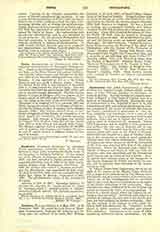

Conza, Archdiocese of (COMPSANA), with the perpetual administration of Campagna (Campanien sis). Conza, a city of the province of Avellino, Southern Italy, on the River Ofanto (the ancient Aufidus), was formerly called Compsa, and belonged to the Hirpini, allies of the Samnites during their wars with the Romans. It was captured in 213 B.C. by Fabius Maximus and was made a Roman colony. During the Second Punic War it was betrayed to Hannibal (214 B.C.) and opened the way to Capua. The city was twice destroyed by earthquakes (980, 1694), and was at one time nearly abandoned. The first known Bishop of Conza is Pelagius, who was present at the Roman synod of 743 held under Pope Zachary. The see was raised to the rank of an archbishopric under Alexander II or Gregory VII (i.e. between 1061 and 1085), having previously been a suffragan of Salerno. Among the bishops worthy of mention is the Blessed Erberto (1169). The bishops resided either in their feudal stronghold of San Menna, at Campagna, or at Sant’ Angelo de’ Lombardi, the present episcopal residence. The Diocese of Campagna was erected by Clement VII, June 19, 1525; the see was vacant from 1793 to 1818, when it was placed under Conza. The dioceses together have a population of 123,000, with 37 parishes, 230 churches and chapels, 232 secular and 10 regular priests, 3 religious houses of men and 5 of women.
U. BENIGNI

